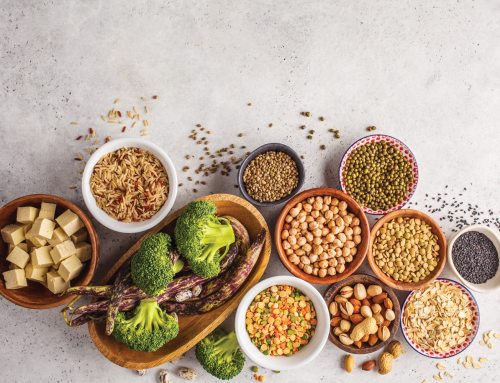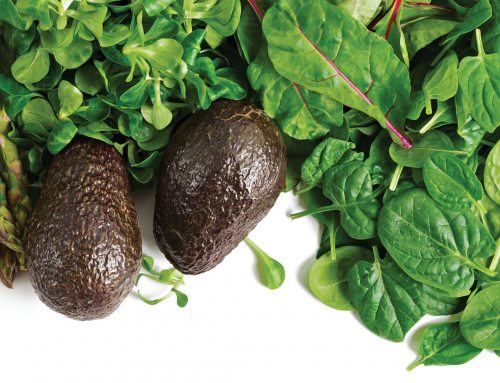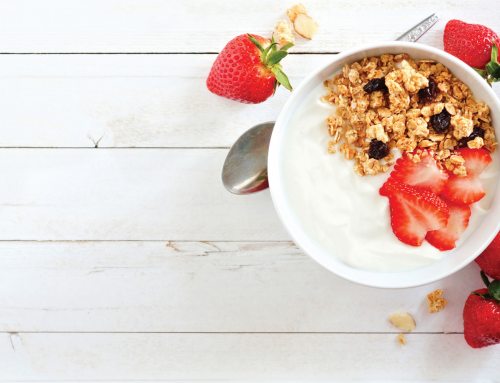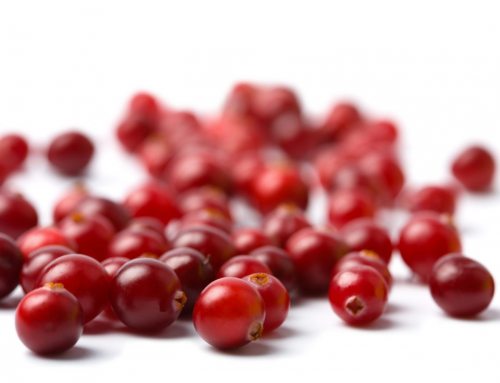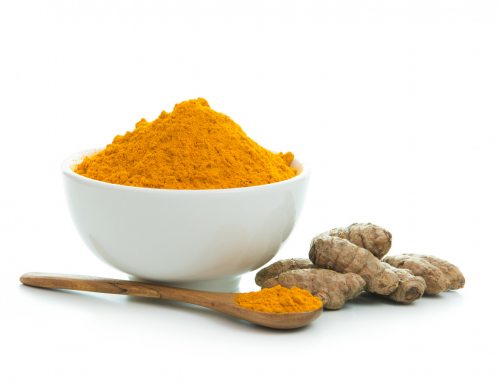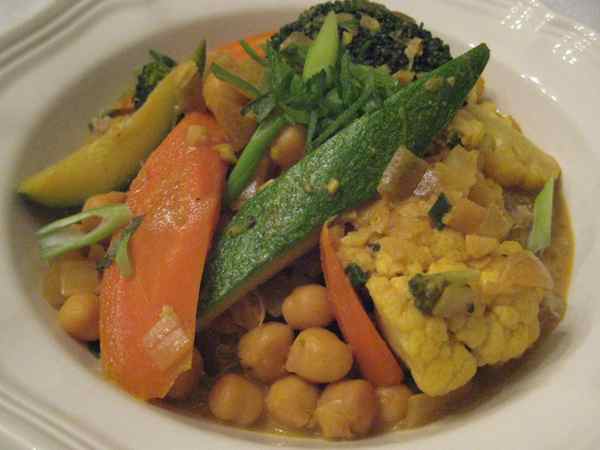
By Brandon McDearis
Quick curries are not only one of the most effective ways to use up leftover vegetables, but they can also be one of the healthiest meals you eat all week. While the benefits of increasing vegetable intake is not news, some might be surprised to hear about the other nutritional advantages to cooking those vegetables into a curry. The spices that go into most curry powders generally include turmeric, cinnamon, cardamom, chili, and cumin (just to name a few). The benefits of these could fill a page, but some of the more important ones include antioxidant, anti-inflammatory, antimicrobial, antibacterial, and immune-boosting properties. Spices such as ginger and cardamom can also help promote digestion and heal stomach issues such as constipation and dysentery, while the onions and garlic used in most curries are powerful detoxifiers.
The light coconut milk in this recipe provides a sweet, creamy taste without so much of the saturated fat for which it is known. While coconut milk often gets a bad rap for being high in fat, recent studies have shown it to have many benefits. Research has shown the saturated fat in coconut milk to metabolize much faster than in other foods, and it has also been proved to contain some antibacterial and antiviral properties.
Enjoy this recipe by itself in a bowl or served over brown rice or couscous. I have also found it to go great over quinoa when I’m trying to keep an eye on my diet. However, my favorite is pairing it up with some buttery naan bread on the days that I’m cheating. The recipe serves 8.
Ingredients:
1 tablespoon olive oil
1 medium onion, diced
1 tablespoon curry powder
2 cloves garlic, minced
1 teaspoon ginger
1 cup broccoli florets
1 cup cauliflower florets
2 carrots, sliced
1 large zucchini, sliced
1 cup chickpeas
1 cup light coconut milk
1 tablespoon soy sauce
1/2 teaspoon Sirracha (optional)
Directions:
1. Heat oil in a large skillet and sauté the onion at medium-high heat until it becomes light and translucent. Add the curry powder, garlic, and ginger and continue sautéing for 1 minute. Add the other vegetables and continue sautéing for another minute.
2. Add the rest of the ingredients and bring to a simmer. Reduce heat to low, cover and allow to cook slowly for 5-10 minutes until the vegetables are soft.
3. Taste and adjust seasoning if additional flavor and/or heat is desired. Serve over brown rice, couscous, or quinoa.
Nutritional Info:
Calories: 220 / Fat: 12g / Saturated Fat: 2g / Carbohydrates: 21g / Fiber: 9g / Protein: 12g
Choose Laurel Gray’s Dry Rose for this Recipe
Laurel Gray is an estate vineyard and winery in the Yadkin Valley and Swan Creek AVA of North Carolina growing and producing French Vinifera varieties. The winery motto is “French Country with Southern Charm.” Kim Myers, president and co-owner of the vineyard, recommends pairing their new dry rose with our vegetable coconut curry recipe. Laurel Gray’s dry rose is made from first press cabernet sauvignon and cabernet fran. This delicious light red wine tastes of cranberry and pomegranate – a perfect pairing for Indian foods and all types of spicy cuisine. Serve chilled and enjoy!
Laurel Gray is located just one mile off Interstate 77, exit 73B. For more information, please visit www.laurelgray.com.
# # #
Brandon McDearis is a personal chef working in the Charlotte area. He currently owns and operates Your Way Cuisine, www.yourwaycuisine.com. In addition to his culinary training, Brandon also holds a bachelor of science degree in foods and nutrition, with a concentration in dietetics. He primarily focuses on healthy cooking and addressing specific dietary needs of everyone from professional and amateur athletes to busy families and elderly people. Brandon is also one of the board of directors for Wellspring International Outreach (www.wellspring-outreach.org) and works with a group of others to raise money for the abandoned children of Peru.


